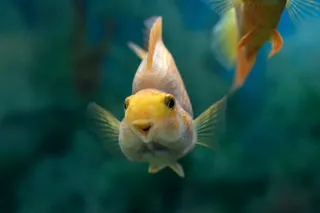We humans are often known as “naked apes”. It might seem like a deserved nickname; after all, we lack the lush coats of body hair that chimps, bonobos and gorillas have in abundance. But we are not naked. We actually have the same density of body hair as other apes of our size, but ours is largely fine and colourless rather than thick and dark. We are coated with a layer of short, fine hair, known technically as vellus hair and colloquially as peach fuzz. Many scientists have speculated about why we humans have lost a thick coat of body hair. But very few of them have offered answers to an equally mysterious question: why have we kept our vellus coat? The fine hairs aren’t very good at preserving body heat, and they don’t make us more or less sexually attractive. They look like the results of a half-hearted evolutionary ...
The semi-naked ape, or why peach fuzz makes it harder for parasites
Discover why human fine body hair, or vellus hair, plays a crucial role in detecting ectoparasites and aids in human evolution.
ByEd Yong
More on Discover
Stay Curious
SubscribeTo The Magazine
Save up to 40% off the cover price when you subscribe to Discover magazine.
Subscribe












